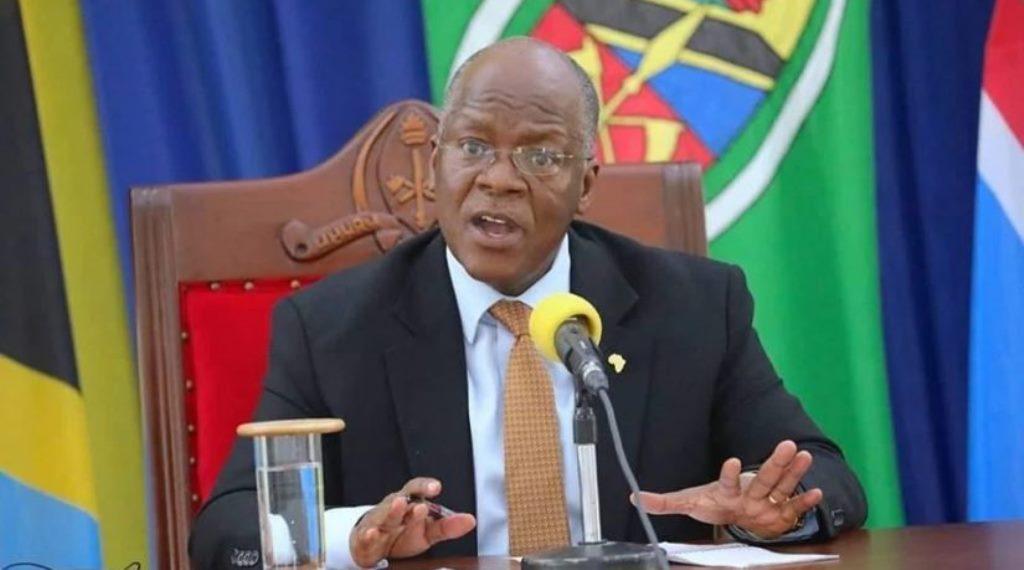Africa-Press – Tanzania. THE year 2020 has descended down in history as a unique and challenging period for many, with droughts, bushfire, and flash floods coupled with the onset of Covid-19 pandemic that has acted as a timely reminder of human vulnerability on the planet.
The human spirit is capable of enduring an incredible amount of stress, but the year 2020 was not easy for anyone and nations as well. Large parts of the economy have been devastated and lives lost on a massive scale.
To many people, whenever the year 2020 is mentioned, immediately it invokes words like a challenge, hardship and crisis.
However, for some, there are lessons to be obtained that offer important perspective as New Year –2021 gets underway today.
One of the lessons other African countries can learn from the way Tanzania handled the pandemic is that one should act fast, but act locally without going for copy and paste untested ideas generally believed.
Most African countries’ health systems are already overstretched and Covid-19 demands an emergency response at scale and that begins with governments.
Tanzania’s Covid-19 containment measures have been noticeable with minimal use of lockdown measures in com- parison to many neighbouring nations, where lockdowns and travel restrictions have largely become the norm.
The government several times emphasized the risk of starvation that was likely to be brought about by lockdowns and the need to protect economic stability.
On April 22nd 2020, President John Magufuli ruled out the possibility of locking down the commercial hub, Dar es Salaam because of the spread of novel coronavirus.
“There are those who have suggested that we lockdown Dar es Salaam. This is not possible as this is the only centre where we collect almost 80 per cent of the country’s revenue. We can continue taking all measures to curb the spread of the virus, but not by lockdown,” he said.
On May 18th, 2020, President Magufuli reiterated that lockdown is not the best option for Tanzania to counter the deadly coronavirus pandemic.
Dr Magufuli maintained his government’s stance not to emulate the lockdown measures, insisting that it would cause more severe problems to the ordinary Tanzanians.
The Head of State said closing the country would mean restricting economic activities and movement of people, which would eventually hamper all development programmes.
President Magufuli was speaking after Sunday Service at the Evangelical Lutheran Church of Tanzania (ELCT), Chato Parish in Geita region.
Cognisant of the adverse effects of lockdowns domestically and across the region, Tanzania opted against closing down her borders.
He noted that most landlocked neighbouring countries depend on the country’s ports to import and export their raw materials, hence closing the borders and roads would cripple their economies.
“We are surrounded by many countries, almost eight countries need us to move their economies… closing borders would mean shrinking their economies. Some countries depend on food from Tanzania– rice, maize, meat and milk… they get all these from us, so closing our borders would have a severe (socio-economic) impact,” he added.
During that time, Tanzania was facing a serious shortage of sugar where 26,000 tonnes were imported into the country from Uganda, where Dr Magufuli said the move clearly signifies the importance of not closing borders for neighbours.
“We had a shortage of sugar recently, I called the Ugandan President, Yoweri Museveni and asked him to support us with sugar, he agreed to sell us 26,000 tonnes, and the consignment has already been shipped into the country. It would have been difficult to bring in sugar if our borders were closed,” he added.
The President further said business between Uganda and Tanzania has been successful and easier because there has been free movement of cargo to and from Uganda.
Explaining the effects of a lockdown domestically, the President said such a response would have derailed big development projects currently implemented by the government in various parts of the country.
He said lockdown would mean suspending flagship projects including the construction of Standard Gauge Railway (SGR), Julius Nyerere Hydropower project, the construction of a new ship in Lake Victoria and a lot of on-going road projects across the country, which employ thousands of Tanzanians.
“The projects are under foreign contractors, therefore suspending them because of coronavirus would have caused massive losses,” he noted.
President Magufuli said locking people inside would have forced the government to feed them, which has proved quite difficult for countries that adopted the response.
“I don’t like to say what is going on to those who opted for lockdowns, but what I can say is that lockdown is not the best model for us,” he said.
President Magufuli again encouraged Tanzanians to continue praying and to put their faith in God to protect the nation from the virus, while urging people to continue working.
He particularly asked the public to engage in economic activities including farming, saying there will be high demand for food come next year (this year).
“Those who locked themselves will see the impact next year (this year), but Tanzania will support them, therefore, you should be engaged in farming as much as you can so that you can sell your crops to the needy,” he said.
On the other hand, President Magufuli said regular reports that drivers from Tanzania tested positive for the virus were disturbing.
“Sometimes, many drivers are said to test positive, but I wonder how they would manage to drive several kilometres without collapsing until they get tested at the borders,” said President Magufuli.
A paper entitled ‘Lockdown measures in response to Covid-19 in nine sub-Saharan African countries’ published by BMJ Global Health 2020 highlighted that the use of lockdown measures to control novel coronavirus is undeniably complex.
Not only do the measures have wide-ranging health; social, political and economic effects that produce both benefits and harms, the benefits and harms of lockdown measures are not shared equally across a country’s population.
Furthermore, the paper illustrated the full impact of lockdown measures, which will also be known many years to come.
The associated collateral effects of worsening poverty and food insecurity, as well as uncertainty about the feasibility of effective Covid-19 control transmission raise particular questions about the appropriateness of lockdown in the Sub- Saharan African context.







